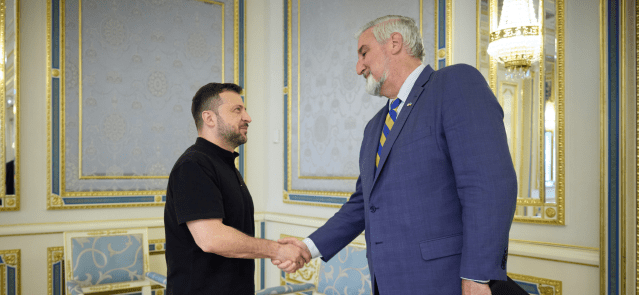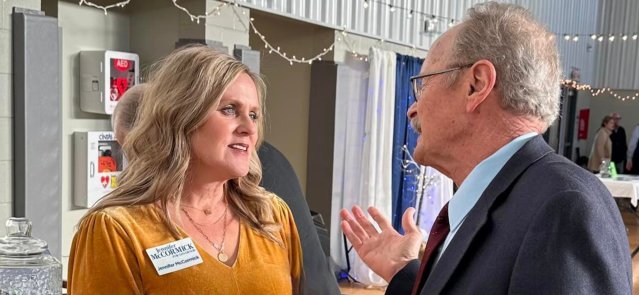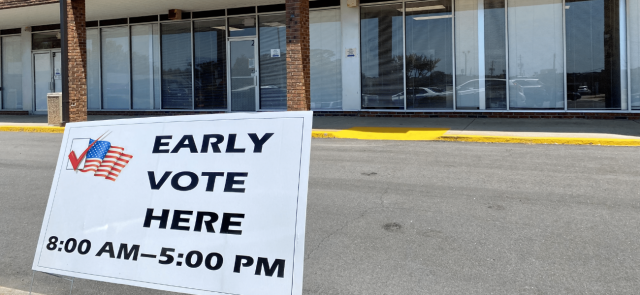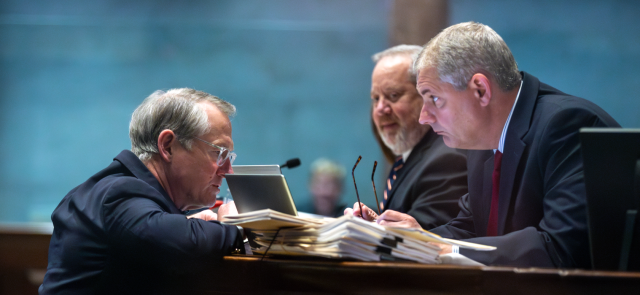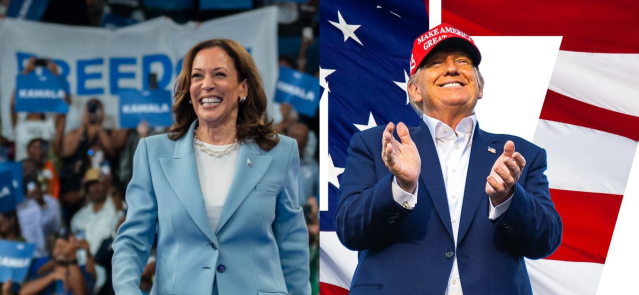MICHIGAN CITY, Ind. — The political prosecution of Donald J. Trump will begin live on network TV in prime time next Tuesday when he faces Vice President Kamala Harris in their first presidential debate.
It will be different from the legal prosecutions that could have taken place in four courtrooms in New York, Washington, Florida and Georgia. And these prosecutions would be different from the political “persecutions” Trump has consistently said have been ginned up and arrayed against him as he seeks a return to the White House.
“These four horrible, radical-left Democrat investigations of your all-time favorite president, me,” Trump said on NPR’s “Consider This” in February 2023. “When you look at what’s happening, this is a persecution of a political opponent. This was never supposed to happen in America. This is the persecution of the person that’s leading by very, very substantial numbers in the Republican primary and leading Biden by a lot. So if you can’t beat him, you persecute him or you prosecute him.”
On ABC next Tuesday, Harris will press her case before American voters. The verdict is expected to be rendered in early to mid-November when votes are counted in thousands of counties across America.
And it is altogether appropriate that American voters, not jurors, make the most profound judgment in the history of the United States.
The American judicial system has been snail slow to react to the events that occurred on or before the Jan. 6, 2021, U.S. Capitol insurrection. Like that Jan. 2, 2021, phone call President Trump made to Georgia Secretary of State Brad Raffensperger asking him to “find” more than 11,000 votes that could have swung the state to his Electoral College tally. Or since March 30, 2022, when the FBI opened a criminal case for unlawful retention of classified documents stored next to Mar-a-Lago toilets and in unsecured ballrooms.
The legal timelines are there, from the June 3, 2022, grand jury subpoenas surrounding 38 classified documents at Mar-a-Lago to Nov. 18, 2022, when Attorney General Merrick Garland appointed Jack Smith as special counsel three days after Trump declared his candidacy for 2024.
Or on April 4, 2023, when Manhattan District Attorney Alvin Bragg announced a 34-count indictment, making Trump the first former president to face the music. Or June 8, 2023, when a federal grand jury in Florida indicted Trump 37 times on the classified doc case. Or the Aug. 14, 2023, Fulton County grand jury that indicted Trump on racketeering charges, alleging he led a criminal organization in an attempt to overturn Georgia’s election results.
Since all of these legal indictments have been handed down, a verdict has been rendered only in Manhattan, with 34 guilty counts coming after a short period of deliberations by all 12 jurors.
“This was a disgrace,” Trump said as he exited the courtroom. “This was a rigged trial by a conflicted judge who was corrupt. The real verdict is going to be Nov. 5 by the people.”
Harris is a prosecutor by trade, so for her it’s game-on.
During her Democratic National Convention speech in Chicago last month, she described finding out that her best friend had been sexually abused.
“This is one of the reasons I became a prosecutor: to protect people like Wanda, because I believe everyone has a right to safety, to dignity and to justice,” Harris said. “As a prosecutor, when I had a case, I charged it not in the name of the victim, but in the name of the people, for a simple reason. In our system of justice, a harm against any one of us is a harm against all of us. And I would often explain this to console survivors of crime, to remind them: No one should be made to fight alone. We are all in this together.
“And every day, in the courtroom, I stood proudly before a judge and I said five words: ‘Kamala Harris, for the people.’ And to be clear — and to be clear, my entire career, I’ve only had one client: the people.”
As for Trump, Harris said, “In many ways, Donald Trump is an unserious man. But the consequences … of putting Donald Trump back in the White House are extremely serious.”
Harris then asked the audience to consider what had occurred.
“Consider — consider not only the chaos and calamity when he was in office but also the gravity of what has happened since he lost the last election,” she said. “Donald Trump tried to throw away your votes.
“When he failed, he sent an armed mob to the U.S. Capitol, where they assaulted law enforcement officers,” Harris continued. “When politicians in his own party begged him to call off the mob and send help, he did the opposite — he fanned the flames. And now, for an entirely different set of crimes, he was found guilty of fraud by a jury of everyday Americans and separately — and separately found liable for committing sexual abuse.”
Harris added, “Consider — consider the power he will have, especially after the U.S. Supreme Court just ruled that he would be immune from criminal prosecution. Just imagine Donald Trump with no guardrails and how he would use the immense powers of the presidency of the United States. Not to improve your life, not to strengthen our national security, but to serve the only client he has ever had: himself.”
Polling has consistently shown a majority of Americans don’t believe that the criminal charges are politically motivated or that Trump is being persecuted.
In August 2023 after Trump was indicted in Florida, ABC News/Ipsos found that 51% thought the former president’s federal indictment related to the Jan. 6 Capitol attack and his efforts to overturn the 2020 election were very serious.
Following his Manhattan convictions, Reuters/Ipsos found that 54% of registered voters said they would not vote for Trump if he were convicted of a crime, a six-point drop from this past April (60%) before the trial began. The drop was driven entirely by Republicans. In April, 24% of Republicans said they would not vote for Trump if a jury convicted him of a felony. However, after the guilty verdict, only 14% said they would not vote for him.
Beyond Manhattan, the criminal proceedings have been achingly slow, to the point that juries will not be seated, arguments not heard and verdicts not rendered until after voters make the political decision on whether to return Trump to the White House.
Thus, Tuesday’s debate will be precedent-shattering: the former prosecutor versus the felon former president.
“Whoever heard you get indicted for interfering with a presidential election where you have every right to do it?” Trump said Sunday on Fox News. “You get indicted and your poll numbers go up.”
Needless to say, this upcoming debate should be … interesting.
Brian A. Howey is senior writer and columnist for Howey Politics Indiana/State Affairs. Find Howey on Facebook and X @hwypol.

